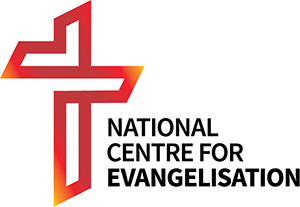What is the RCIA?
The RCIA is a process – not a program, and it is the normative way in which adults are brought into the Catholic Church. The RCIA was promulgated in 1972 following Vatican II’s call for it to be reinstated. The RCIA process echoes the way in which adult initiation was conducted in the early Church.
The RCIA process is a way of responding to Jesus’ call to his disciples to go out to all nations, to baptise and to teach, in order that more disciples will be formed to do likewise (Matthew 28:16-20). This is sometimes referred to as the Great Commission.
The Catechism of the Catholic Church (n. 849) confirms this missionary mandate when it states:
"Having been divinely sent to the nations that she might be 'the universal sacrament of salvation,' the Church, in obedience to the command of her founder and because it is demanded by her own essential universality, strives to preach the Gospel to all people": "Go therefore and make disciples of all nations, baptising them in the name of the Father and of the Son and of the Holy Spirit, teaching them to observe all that I have commanded you; and Lo, I am with you always, until the close of the age."
The RCIA is sometimes understood simply as several stages, marked by special liturgical rites, that a person who wants to become a Catholic goes through. In simplistic terms this is correct. However, the RCIA is so much more than this, especially when it is done well. The RCIA process should aim to immerse the enquirer into the fullness of Catholic life and a true conversion of heart to Jesus. This immersion includes the liturgical, catechetical and pastoral formation of the enquirer, before and after their initiation. Such formation would include study of the Scriptures, participation in the liturgical life of the Church, prayer, assent to the moral and doctrinal teachings of the Church and an understanding that the baptised are also called to be on mission.
To learn more about the RCIA we recommend you read this article on the Catholic Australia website.
Some people might ask, if adults are expected to go through the RCIA process, why does the Catholic Church allow infant baptism, when they are obviously too young to go through any formal processes. The belief here is that the formation of the child, in the ways of the Catholic faith, will be undertaken by the parents, with the support of the parish community, as the child grows in maturity.
The RCIA process within the life of a parish?
The RCIA process should be linked to every aspect of ministry and mission within the life of the parish. In all its missionary endeavours, parish leaders need to consider the three tasks of evangelisation – how will enquirers encounter Jesus, become disciples and go out on mission?
The inclusion of anyone discerning becoming a Catholic must be considered when a parish is preparing its evangelisation efforts, its liturgical and formation offerings, and its pastoral and spiritual care of people within the parish boundaries. It is only by accompanying and integrating the enquirer into the whole of parish life, that a new Catholic can come to love Jesus and the Church.
Where can I find support for offering the RCIA process in my parish?
The following is a list of resources you might find helpful in either starting the RCIA process in your parish, or re-assessing how well your process is going.
1. Diocesan RCIA coordinators. Many dioceses in Australia have a person or team dedicated to the RCIA process ministry. Contact details for diocesan offices can be found here.
2. Christian Initiation Australia Network (CIAN). This national network supports all those ministering in the RCIA process.
3. NCE articles on RCIA:
- Are parishes ready, willing and able to welcome people into the Catholic faith? (The Bridge, December 2020)
- RCIA: The RCIA process in your parish (The Bridge, February 2022)
- Thinking about conversion in the RCIA process (The Bridge, April 2022)
4. The essential parish resource for RCIA is the International Commission on English in the Liturgy, Rite of Christian Initiation of Adults (Study Guide), Sydney: St Paul’s Publications, 2018.



